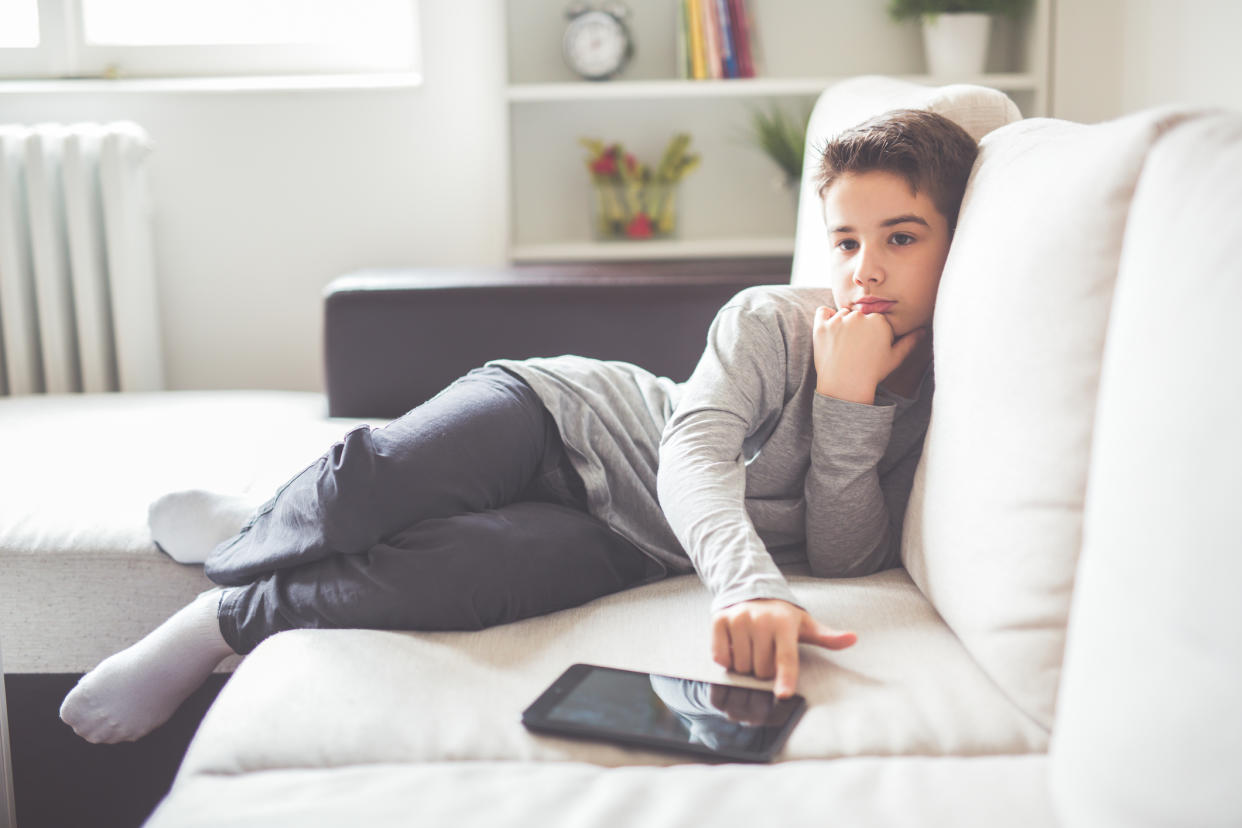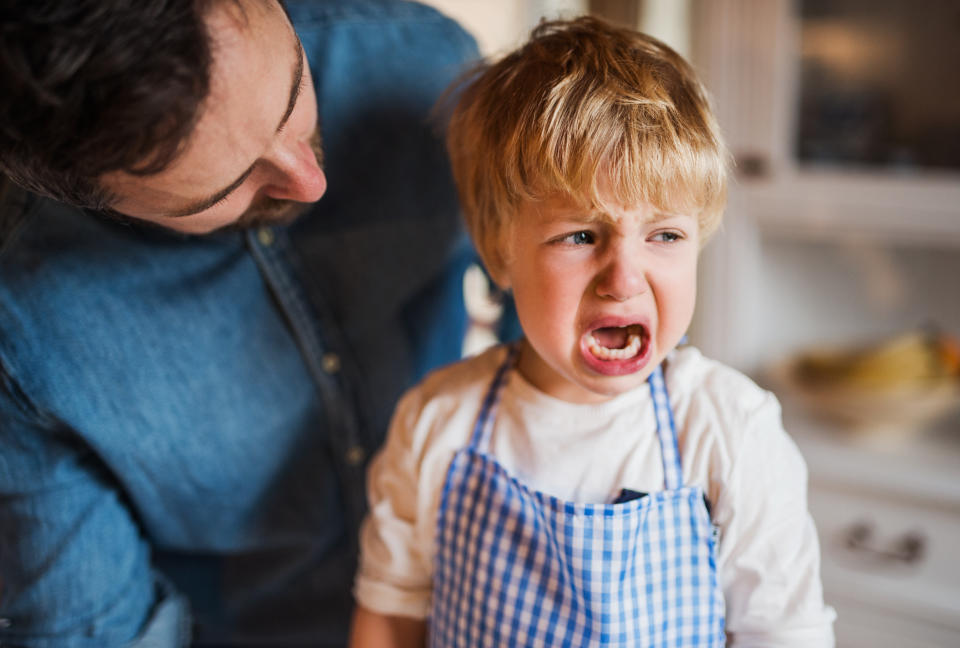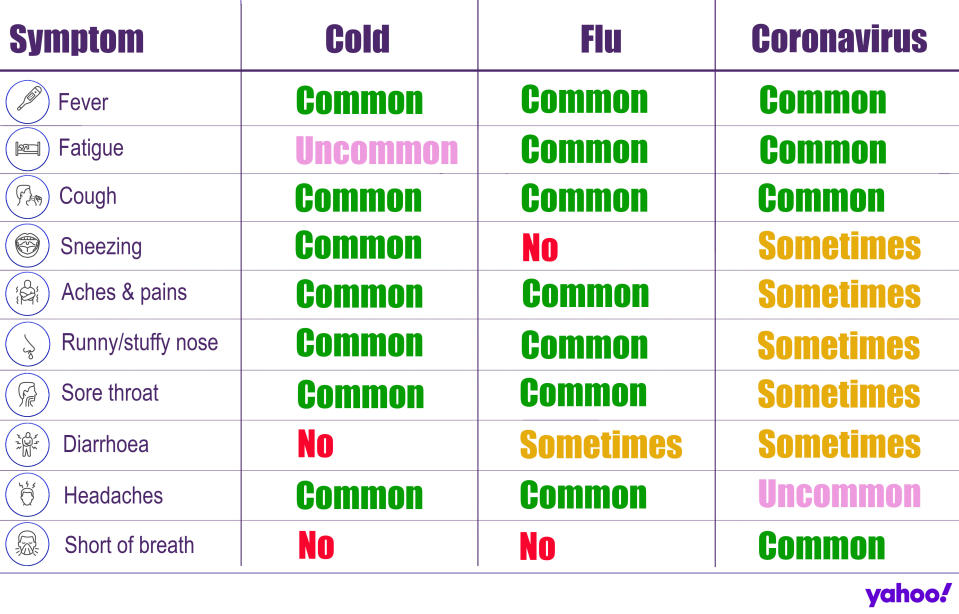How coronavirus measures may be affecting children's mental health – and how parents can help

Ordinarily, children would react with joy to news that school is out. But the coronavirus outbreak isn’t ordinary.
And while initially children may have done a little fist pump at the knowledge they wouldn’t have to don their uniforms for a while, the reality of having to stay home for fear of contracting coronavirus is no doubt hitting home.
As well as having an impact on the quality of their education, being on lockdown could also be having an effect on your child’s mental health.
“Children may be struggling with a number of issues around social distancing,” Dr Amanda Gummer, child psychologist and founder of the Good Play Guide.
“They may be feeling disoriented and confused as to what's happening, anxious about their parent's jobs or wider family members' health, missing their friends, or struggling with lack of active play opportunities.”
Latest coronavirus news, updates and advice
Live: Follow all the latest updates from the UK and around the world
Fact-checker: The number of Covid-19 cases in your local area
Explained: Symptoms, latest advice and how it compares to the flu
Dr Gummer says this can all manifest in a number of ways.
“Parents shouldn't be surprised if children seek out comforting toys that they played with when they were younger, or struggle with controlling their temper,” she says.
“They may also be more inclined to cry than usual and may also be more demanding of your time and go into a bit of a clingy phase.
“All of this is perfectly natural responses to uncertainty and change.”
Thankfully, there are some ways for parents to help little ones through these tricky times.

How parents can help children cope during coronavirus ‘lock-down’
Get to the source of their turmoil
The first challenge, according to Dr Gummer, is to try to find out what has thrown the kids off-balance.
“Is it missing friends or family, feeling disoriented because of the disruption to normal routine, fear about getting the virus, or anxiety about someone they love getting it, or any number of other issues that have arisen as a result of the situation we're now all in?” she says.
“Once you have an idea of what it is that's causing a child to feel anxious, you're better able to address it and not overreact, if it is something that is relatively easy to fix.
“Whatever the issue, try to reassure your child that this is only a temporary situation and things will return to normal.”
Read more: Online classes and activities for children during the coronavirus outbreak
Try some mindfulness
Dr Elena Touroni, a consultant psychologist and co-founder/co-CEO of My Online Therapy, says there are a number of specific mindfulness exercises that families can do together to help ease children’s anxious minds.
“I would recommend starting the day with a 10-minute mindfulness meditation to calm the mind,” she says.
Turn to tech
While experts often advise limiting screen time, Dr Gummer suggests parents could relax screen time rules right now.
“Arranging virtual play dates is a great way for children to stay connected with friends and family,” she says. “Children may also enjoy teaching older relatives how to use the tech if needed.”
Dr Touroni agrees it is important to ensure that children maintain their social life during this time. “Depending on their age, most children are in contract with their friends online so it's about finding different ways that they can maintain friendships and social interaction,” she says.

Up the fun factor
Try to think of fun activities that children might not normally be able to do. “Turn the living room into a giant den and having a picnic in there, for example,” Dr Gummer suggests. “Try to bring a sense of fun and adventure into the whole experience.”
According to Dr Gummer, children will be more likely to open up about their worries during play. “Imaginative games and roleplay are great for this sort of thing, and board games are a great distraction that allows the whole family to have some fun together and de-stress.”
Read more: Best apps to help you stay connected to loved ones while practising social distancing

Find digestible ways to explain what's happening
But make sure not to be overly frightening. “It's a fine balance between providing enough information so they understand what's happening without sharing anything that might make them very scared,” Dr Tourini says.
Read more: How to talk to children about the coronavirus
Strike a balance
Dr Touroni says it can help to create a structure with a good balance of educational and creative activities, as well as time spent outside e.g. going for a walk.
“All in all, it's about finding a good blend of activities to do at home that calm the mind and keep the body engaged whilst also keeping them up to date with what is going on,” she says.
Dr Gummer suggests having a family meeting to discuss routines and ways of making this easier on everyone.
“Children will react better if they feel they are being listened to,” she says.




